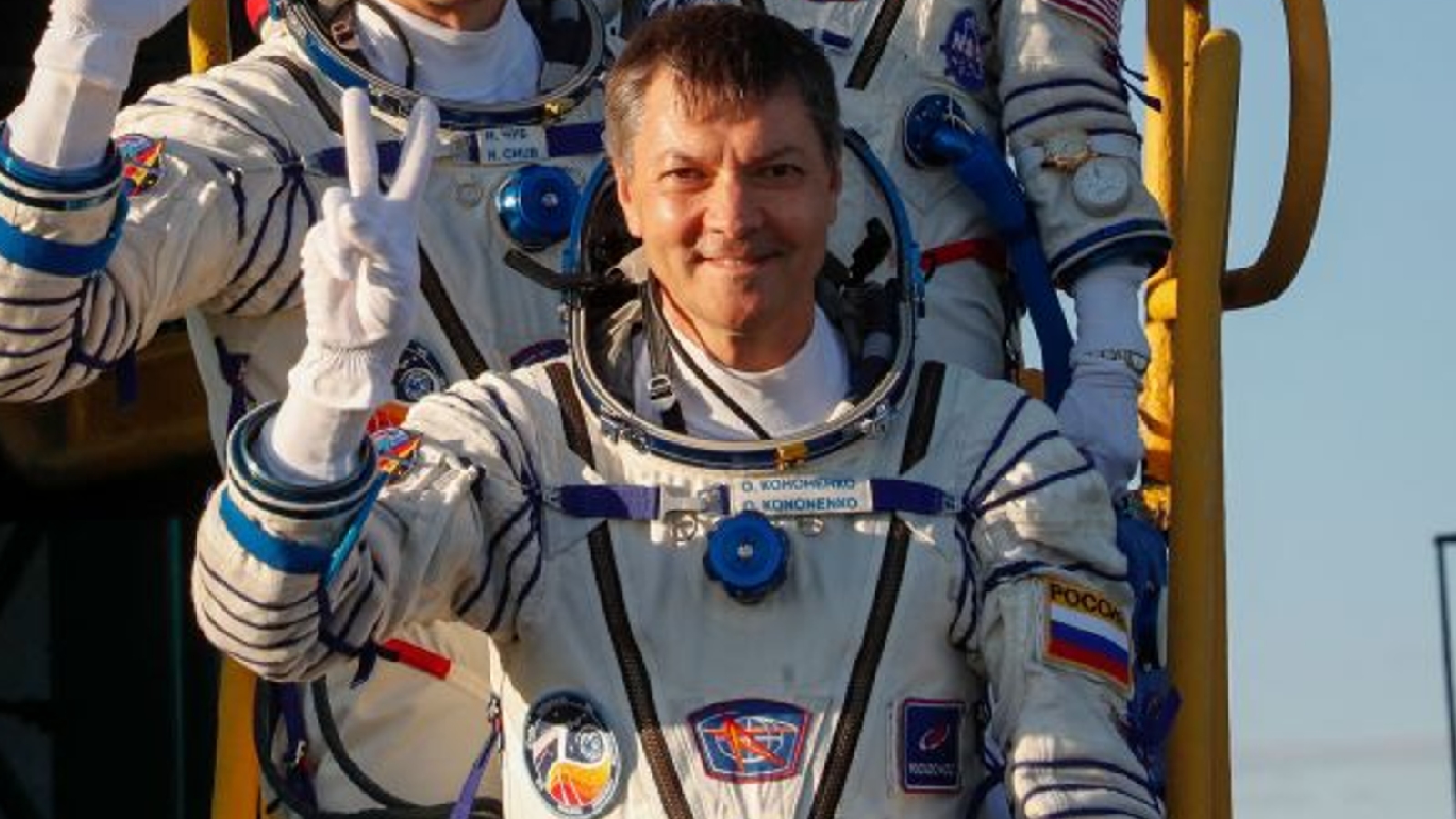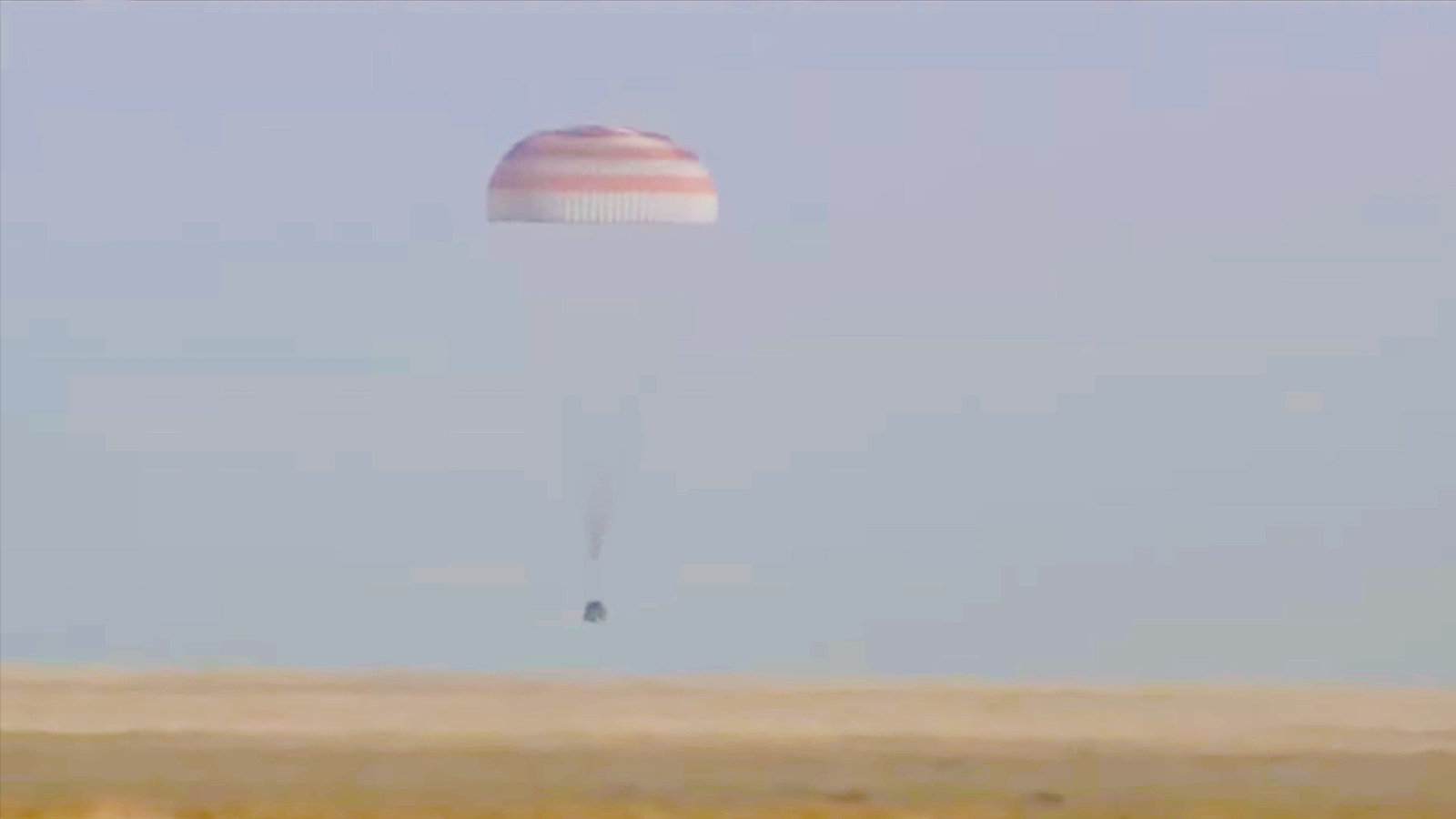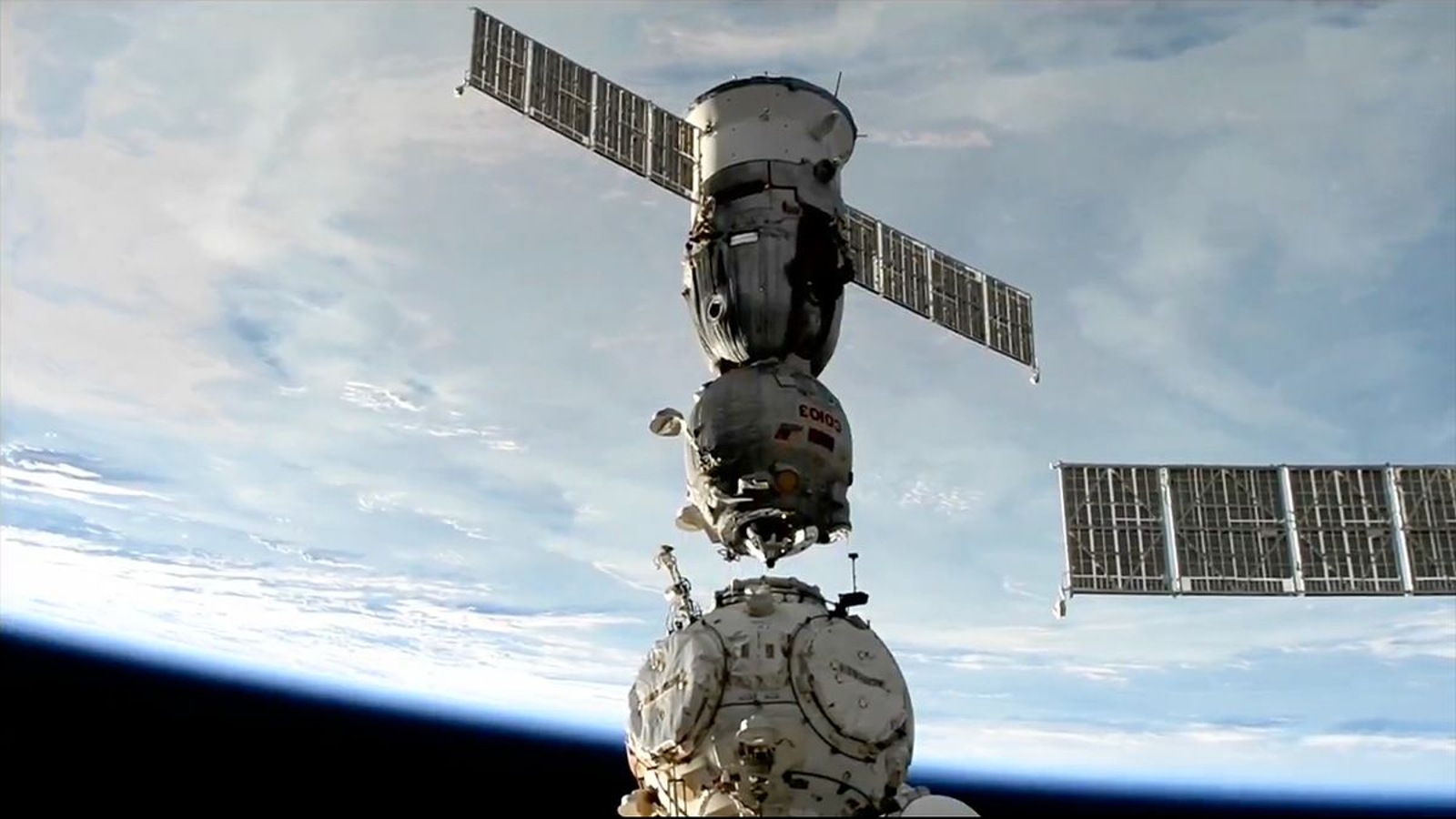
Veteran Russian cosmonaut Oleg Kononenko has returned to Earth after a record-breaking year-long stay onboard the International Space Station (ISS). The 60-year-old spaceman has now spent 1,111 non-consecutive days in orbit, which is longer than any other astronaut in history — and will likely remain unbeaten for many years.
Kononenko, who turned 60 in June, returned to Earth inside Russia's Soyuz MS-25 spacecraft on Monday (Sept. 23), alongside fellow cosmonaut Nikolai Chub and NASA astronaut Tracy Caldwell Dyson, according to Live Science's sister site Space.com. The trio touched down in the steppe of Kazakhstan around 3.5 hours after undocking from the ISS.
The two cosmonauts, or Russian astronauts, had spent a record-breaking 374 continuous days onboard the space station, narrowly beating NASA astronaut Frank Rubio who inadvertently completed a 371-day stay on the ISS last year after his return craft was damaged. Dyson, meanwhile, returned after spending 184 days in space.
Kononeko first broke the record for most cumulative days in space in February, when he surpassed the 878-day haul of compatriot Gennady Padalka, who set the record in 2015. Kononeko has flown on five different missions to the ISS since 2008, which is how the spaceflight veteran racked up his impressive total.
"Thanks to all my crewmates for your friendship. It has been a great time and pleasure to work and spend time together here as a big family on board the International Space Station," Kononenko said as he was leaving the ISS. "Right now I am leaving my second home."
Related: Space X's Polaris Dawn astronauts 'touch the void' on 1st-ever private spacewalk

During his cumulative time in space, Kononenko has completed roughly 17,800 trips around Earth and spent more than 44 hours in the vacuum of space across seven different spacewalks.
To put these numbers into perspective, Kononeko is single-handedly responsible for around 1.5% of the total time spent in space by more than 600 people, since the first human space flight was accomplished by Kononeko's compatriot Yuri Gagarin in 1961.
One record that Kononenko has not beaten during his stellar career is the longest continuous stay in space, which is held by Valeri Polyakov, who spent 437 days on Russia's former Mir space station between 1994 and 1995.
During Kononeko's most recent visit, 14 different spacecraft arrived at the ISS, including Boeing's infamous Starliner rocket, which recently returned to Earth without astronauts after suffering multiple helium leaks. NASA astronauts Butch Wilmore and Suni Williams have been stranded in space as a result, and the latter has just taken over command of the ISS from Kononenko.
It is unclear whether or not Kononenko will make any more trips into space. He has not yet announced his retirement but has previously admitted that spaceflight is "becoming more complicated" and that preparing for missions "has not become easier" over time.

But even if he does retire soon, his record will likely stand for a long time as the next 10 astronauts on the list of most cumulative days in space are either inactive or dead.
The next active astronaut on the list is Russia's Sergey Prokopyev, who has spent 567 non-consecutive days in space, but it is unlikely that he will break the record before Russia fully withdraws from the ISS by 2025. However, cosmonauts will likely visit China's recently completed Tiangong space station in the future as part of the two countries' joint mission to build a base on the moon by 2035.
An American is unlikely to break Knononeko's record before the ISS is deorbited and crashes back to Earth in 2030, largely because NASA does not generally allow its astronauts to stay in space as long as Russian cosmonauts.
For Kononenko, his record is a nice achievement but has not been the prime motivation for his long lasting career. "I fly into space to do my favorite thing, not to set records," he said in February after breaking the cumulative spaceflight record.







